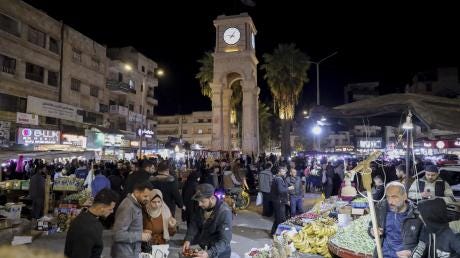Syria's Idlib Launches First Economic Free Zone to Spur Post-Liberation Recovery
Authorities in Syria's Idlib province have officially launched the development of its first economic free zone, a landmark project aimed at revitalizing the regional economy, attracting investment, and creating jobs. The announcement was made by the Governor of Idlib, Mohammed Abdul Rahman, in coordination with the General Authority for Land and Sea Ports, marking what officials describe as a "qualitative leap" in the province's economic history.
A Strategic Pillar for Economic Development
The new free zone is strategically located in the eastern part of the province, on the international highway near the city of Saraqib, giving it a significant logistical advantage. The project is designed to be a cornerstone of economic development for northwest Syria. Its primary goals are to attract local and foreign investment, support small and medium-sized enterprises (SMEs) to increase local agricultural and industrial production, boost Syrian exports to regional markets, and reduce high unemployment rates by creating thousands of jobs.
Breaking Decades of Economic Marginalization
According to economic researcher Hayan Hababa, this initiative represents a decisive break from the past. He noted that for decades, Idlib was deliberately marginalized and excluded from major economic plans for political reasons. "What we are witnessing today is the breaking of this isolation and the return of Idlib to the Syrian economic map," Hababa stated. The free zone is seen as a crucial starting point for economic recovery, particularly as discussions around the potential easing of sanctions on Syria continue.
Future Expansion and a Dedicated Auto Zone
The vision for this economic revitalization extends beyond the initial phase. Governor Abdul Rahman confirmed that the next stage will include the establishment of a second, separate free zone specifically dedicated to the car trade and showrooms. This move aims to organize and expand a vital commercial sector to better serve the interests of citizens and traders.
Navigating Challenges and Opportunities
While the project holds immense promise, experts acknowledge potential challenges, such as the risk of duty-free foreign products overwhelming nascent local industries. However, analysts like Hababa argue that this is a necessary transitional phase. "In the current situation, we are obliged to bring in foreign goods without customs duties because local production has not yet taken off, and the citizen needs goods at acceptable prices, especially those used in production lines, energy, and agricultural mechanization," he explained. This stage will require flexible and well-studied policies that balance immediate market needs with the long-term protection of national production.
Looking Ahead: A Nucleus for Transformation
The project, bearing the slogan "Loyalty makes giving easy," symbolizes a commitment to supporting Idlib's economy after years of challenges and reintegrating it into the national investment landscape. If supported by strong infrastructure, transparent governance, and stable security, the Idlib Free Zone has the potential to become the nucleus for a major economic transformation in northwest Syria, turning the dream of recovery into a productive reality.
Source: Al-Araby Al-Jadeed


